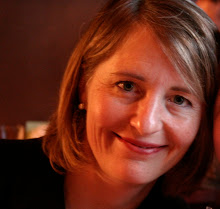"Here I want to mention another incident about Micheal. In Hull, where we were brought from place to place and watched like a herd of cattle, we noticed an old lady that had become sick on the boat. She was all alone, had no acquaintance that helped her, as all others had to help themselves. Two men brought this lady in. There was no place to lay her down or even a place where she could sit, and she looked as though she was paralyzed. So they laid her on the floor with a small suitcase at her side. There she lay. No one spoke to her or did anything for her. If anyone did speak to her, there was no answer. When we were ordered in on the train, that lady was left lying there. A little while before the train pulled out, as we were watching from the window, those same two men came carrying that lady, and she was put on a different coach.
We rode all night. We tried to sleep as best we could sitting or lying in our seats. We wakened the next morning to find the sun shining on the most beautiful landscape. Nice green meadows, trees in their summer foliage, and well-built farms. We thoroughly enjoyed the beauty of Mother Nature. We saw large flocks of sheep, cattle and horses, which especially took my eye. This must be an example of the wonderful America, we thought! Presently, it all disappeared before our eyes as our train carried us into a dark tunnel. And so on and on, hour after hour, the morning waned. We stopped at a station, and as we sat looking out, watching the traffic, Micheal cried, "Aa Mamma, der gaar denna daue kjaerringa!" (Oh, Mama, there goes that dead lady!)
And sure enough, I looked and there she was, walking just as spry as you please. We often wondered what kind of sickness she had. Naturally, Micheal's remark caused much merriment among those who understood Norwegian."
Excerpt from Sigrid's account of her journey to America, written in 1919.





